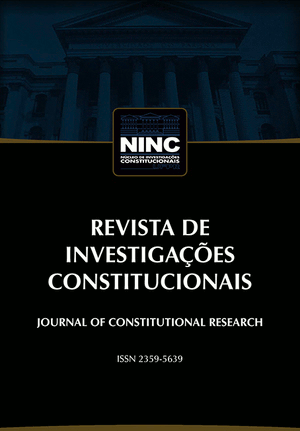Abstract
The impeachment process of Dilma Roussef, in Brazil, arises from the adoption of questionable decisions in the light of Financial Law, as the use of public banks to indirectly finance public expenditure (“tax pedaling”, accounting acrobatics), which led to an imbalance in the public accounts, with consequences quite harmful for the Brazilian economy, which are felt, in the public sector and the private initiative, to the present day, and may continue for many years. In spite of everything, we cannot deny the controversial and bordering aspect of the framing of these illegalities as a crime of fiscal responsibility, which is why we cannot consider as “absurd” the views of those who recognize the presence of technical conditions for impeachment, as well as those who reject them. In any way, the fact that the decision was made by the competent organ - Congress -, under the light of the Constitution, with the control, regarding to the formal aspects, of the Supreme Federal Court, and from findings of the Court of Auditors and the Public Ministry of Accounts, shows us that it is not appropriate to affirm that there was a “coup d’etat”, since everything happened in the terms provided by the Constitution.
Keywords:
impeachment; Financial Law; Brazilian; tax pedaling; additional credits
